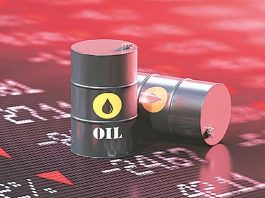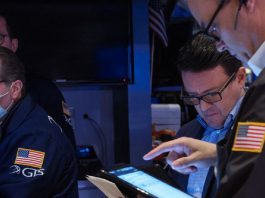PwC advises FG to “take cover” against global trinity threats
Nigeria: With the ongoing trade war in the global economic space between the two leading economies, and the Iran sanctions apart from inconclusive Brexit deal, Nigeria’s government has been advised to take proactive measure to shield the economy from global trinity threats.
The trio threats may impact the performance of the economy, PwC Nigeria thinks.
In its assessment on the Nigeria’s economic exposures to the global threats, PwC Nigeria noted in its report that Federal Government needs to diversify export base, reduce debt accumulation, support and finance import substitution (economic policy that advocates replacing foreign import with domestic production ) to quell the effects.
In 2018, three global economic threats emerged from socioeconomic and political conflicts. These are Brexit, US-China trade war and the Iran sanctions are noted to have impacted the global economic performance in the recent time.
International Monetary Fund said that China US trade war may cut size of the global economy by 5%.
In the report, PwC Nigeria stated that the interaction of these three events have resulted in slow global economic growth, a tit-for-tat conflict on trade relationships, and heightened geo-political tensions in the Middle East.
The firm stated that the trio of Brexit uncertainty, US-China trade war and Iran sanctions hold important consequences for the Nigerian economy.
“Iran sanctions offer an upside for the Nigerian economy. Brexit and the US-China trade war create a downside for the Nigerian economy. Nigeria is exposed to global economic shocks due to significant debt accumulation, import-dependent economy and low diversification of exports”, PwC noted.
At 11.22% as at June 2019, inflation remains marginally stable though relatively high at double-digits. Inflation in Nigeria is mostly impacted by the level of agricultural production, exchange rate movements, money supply and aggregate demand.
According to PwC, if Brexit remains unresolved and the British economy experiences slowdown, the value and volume of Nigeria’s exports to the country may decline. Foreign exchange earnings to the non-oil sector will also likely reduce, further impacting the naira exchange rate (especially naira to pound), and this could impact the inflation rate.
On the other hand, persisting Iran sanctions will lend support to oil price, oil revenue and FX inflows. This will counteract the effect from Brexit. If Brexit uncertainty persists longer than Iran sanctions, inflation could accelerate. However, if Iran sanctions persist longer than Brexit uncertainty, inflation could decelerate.
On the economy, PwC reckoned that the economy has been growing at progressively low rates, from 0.72% in third quarter of 2017 to 2.38% in fourth quarter of 2018 and 2.01% in first quarter of 2019.
The IMF predicted in April 2019 that the Nigerian economy will grow by 2.1% in 2019 compared to the earlier 2.3% predicted in October 2018. The downward revision of economic growth expectation is on the back of Brexit uncertainty and prolonged trade war spate.
“Economic growth in Nigeria is susceptible to the supply-demand dynamics of the global oil sector. On November 5, 2018, the US fully re-imposed the sanctions on Iran that had been waived under the Joint Comprehensive Plan of Action (JCPOA).
“From US$59.46 per barrel in November 2018, Brent crude price hiked to US$64.06 in June 2019. Escalation of the Iran sanctions has resulted in steady uptrend in oil prices”, its report stated.
The report also noted that the exchange rate has been relatively stable at N360/$-N362/$ in the parallel market and N306/$-N307/$ in the official market in first half of 2019(H1’19).
Between oil revenues and remittance inflows from overseas, Nigeria recorded trade surplus, so the country can maintain stable exchange rates and accumulate reserves. The country’s balance of trade increased by 47.1% from N4.03 trillion in 2017 to N5.93 trillion in 2018.
Imposing sanctions on Iran has resulted in rise in crude oil prices, which, in turn has stabilized the exchange rate in Nigeria. The value of the naira against other major currencies, especially the US dollar, is not likely to depreciate, if the US-led sanction on Iran continues.
On the other hand, Brexit and the US-China trade war will increase imports to Nigeria as British, Chinese and American manufacturing companies could divert some of their manufacturing output via exports to Nigeria.
The supply-side effect is expected to induce trade deficit in Nigeria. In addition, Nigeria will record trade surplus if Iran sanction persists longer, Brexit is resolved, and trade war comes to an end. The country will record trade deficit if Iran sanction ceases, Brexit remains unresolved and trade war persists.
The Monetary Policy Committee (MPC) of the Central Bank of Nigeria (CBN) in response to domestic and global developments reduced the MPR from 14% to 13.5% in reaction to escalating Brexit uncertainties and the US-China trade war.
“Whenever the level of inflation rises, CBN raises the MPR, and vice-versa. This is likely to occur because the impact of Brexit and the trade war on inflation is positive.
“We believe that the level of imports to Nigeria is expected to rise, if Britain, China and America channel some of their exports to reverse the slowdown in their respective economies and improve manufacturing output.
“This could cause import-induced inflation in Nigeria. The stronger effect will likely come from Brexit and the US-China trade war. Both effects will constrain exports from Nigeria to Britain, the United States and China, and therefore reduce FX earnings”, PwC reckoned in the report.
In addition, the outflow of FX from Nigeria as payments for imports to these three economies could trigger depreciation pressures on the exchange rate.
Consolidating these effects, inflation will rise, and interest rates may likely be raised to mitigate the inflationary effects on the economy if the CBN effectively executes its 5-year monetary policy thrust to boost economic activities and output.
Especially, with respect to inducing credit to the real sector, agriculture activities and Small and Medium scale Enterprises. This will help to boost domestic production, which will result in enhancing the import substitution policies of the FG.
“The trio of Brexit uncertainty, US-China trade war and Iran sanctions hold important consequences for the Nigerian economy. Iran sanction offers an upside for the Nigerian economy.
“Brexit and the US-China trade war create a downside for the Nigerian economy. The country is exposed to global economic shocks due to significant debt accumulation, import dependent economy and low diversification of exports”, PwC stated.



